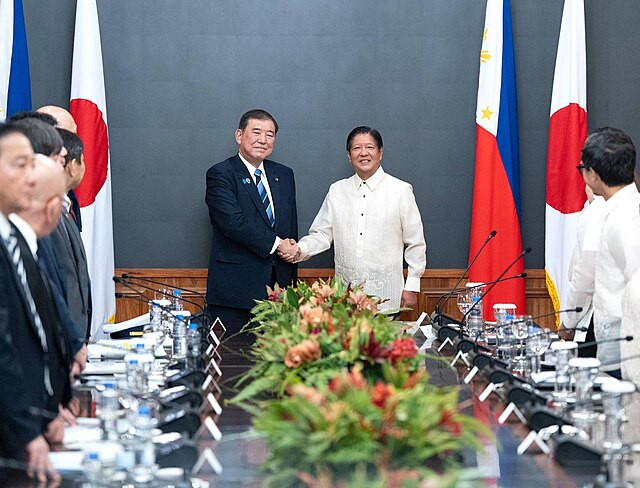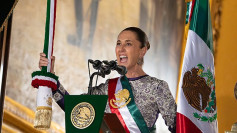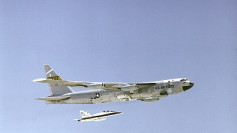Japan and the Philippines agreed Tuesday to begin formal negotiations on two defense pacts as both nations deepen security ties in response to China's growing assertiveness in contested Asian waters. The announcement came during Japanese Prime Minister Shigeru Ishiba's first official visit to Manila, where he met with Philippine President Ferdinand Marcos Jr.
Ishiba confirmed the upcoming talks would cover an Acquisition and Cross-servicing Agreement that would allow Japanese forces to receive fuel, food, and logistical support when operating in the Philippines, particularly during joint training exercises. The agreement builds on a broader defense accord signed last year, already ratified by the Philippine Senate and awaiting approval in Japan.
The two leaders also agreed to initiate government-to-government discussions on a security of information agreement, enabling the exchange of classified military intelligence. A similar arrangement between the U.S. and the Philippines was finalized in November, reflecting Manila's growing integration with key regional allies.
"We oppose any attempt to unilaterally change the status quo through force or coercion in the East and South China Seas," Ishiba said at a joint press conference with Marcos, referencing Beijing's maritime activities without naming China directly. "I hope that our two countries will continue to work closely together to realize a free and open Indo-Pacific based on the rule of law."
Tensions between China and the Philippines have intensified, with repeated clashes between their coast guards in the South China Sea. On Monday, Beijing accused six Filipinos of illegally landing on the Tiexian Reef, known in the Philippines as Sandy Cay. The Japanese-built BRP Magbanua, one of Manila's largest patrol vessels, was damaged last year during a confrontation with the Chinese coast guard near the disputed Sabina Shoal.
Japan faces its own maritime standoff with China over the Senkaku Islands in the East China Sea, known as the Diaoyu in Chinese, where Chinese vessels frequently enter waters claimed by both countries.
Marcos emphasized Japan's vital role in regional security, calling the partnership a "golden age" in bilateral relations. He said Tokyo's assistance has "allowed our security agencies and especially the Department of National Defence to achieve meaningful upgrades."
Japan has supplied the Philippines with 12 patrol vessels in recent years and plans to provide at least five more. It has also transferred radar systems and other military equipment to support the Philippines' underfunded defense infrastructure.
During their meeting, the two leaders also discussed the economic impact of U.S. tariffs. Ishiba criticized the ongoing trade policies initiated by President Donald Trump, saying they have significantly affected Japanese businesses operating in Vietnam and the Philippines. "The U.S. tariff measures have dealt a major blow to the economies of both Vietnam and the Philippines," Ishiba said, adding that he would meet with Japanese business leaders in Manila to assess the challenges firsthand.
The talks follow Ishiba's visit to Vietnam, another Southeast Asian country facing maritime pressure from Beijing. Both Hanoi and Manila have increased cooperation with Tokyo and Washington in recent years as territorial disputes in the region escalate.






